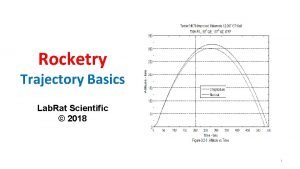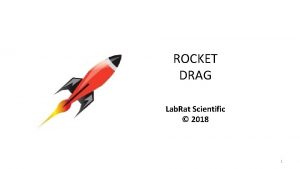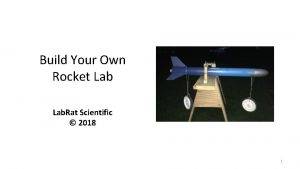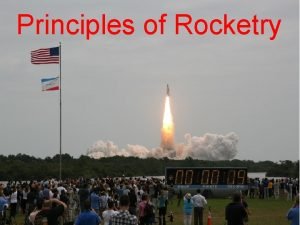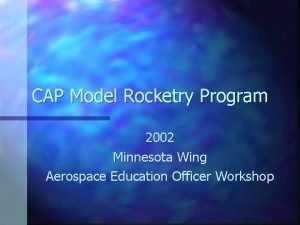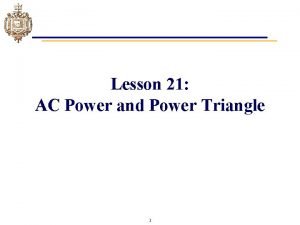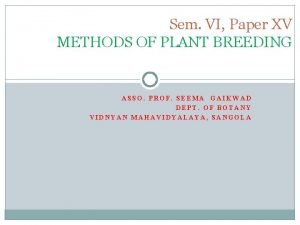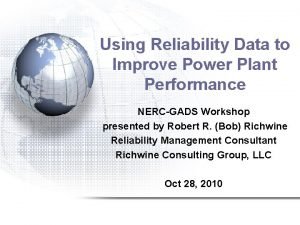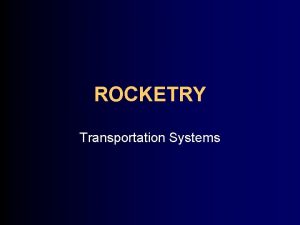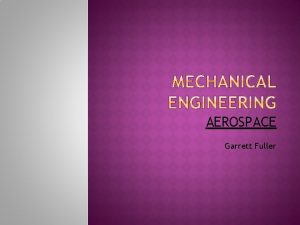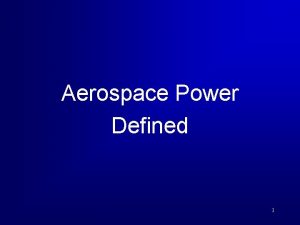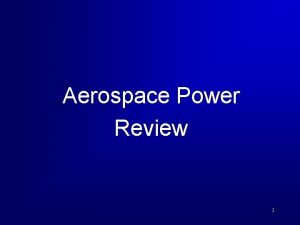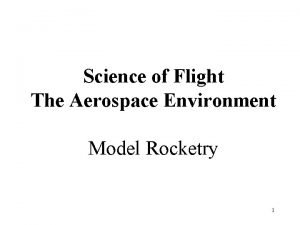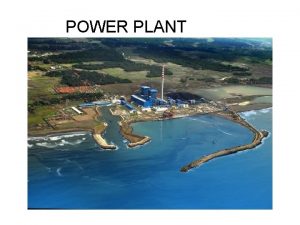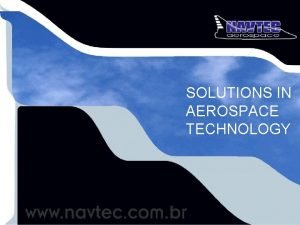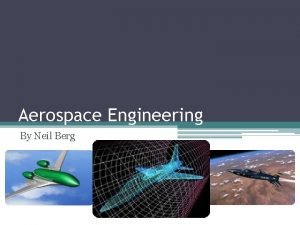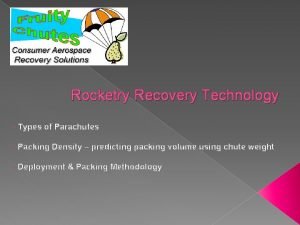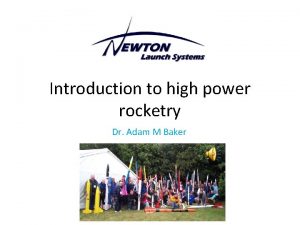Technology Education Aerospace Power Plant Rocketry How a



















- Slides: 19

Technology Education Aerospace Power Plant

Rocketry • How a Rocket Works • The Math and Science Behind a Rocket Engine.

Physics of a Rocket • Who is more powerful? • The Dodge Viper weighs 3410 Pounds • It Has 525 Foot Pounds of Torque

Your Rocket • Your Rocket Engine An Estes B 6 -4 Has 13. 5 Pounds of Thrust • However, Your Rocket Weighs Less Than Two Ounces

The Math Behind The Power To Weight Ratio • Dodge Viper 3410 Pounds /525 Ft Pounds = 6. 5: 1 Ratio • Your Rocket 2 Ounces/216 Ounces = 1: 108 Ratio Min.

Exhaust Velocity • Your Engines Exhaust Velocity is 2550 to 2650 Feet Per Second • 2550 Feet Per Second is Equal to 1, 738 Miles Per Hour

How A Rocket Engine Works • Combustion-A chemical change, especially oxidation, accompanied by the production of heat and light.

• Fuel-A material such as wood, coal, gas, or oil burned to produce heat or power. • Oxidizer-A substance that oxidizes another substance, especially one that supports the combustion of fuel; an oxidizing agent.

Types Of Rocket Engines • Solid Rocket Engines • Liquid Rocket Engines

Solid Rocket Engine Positive Things About Solid Rocket Fuel • Cheaper and Easier to Construct • Very Powerful • Will Store for Longer Periods of Time

Negatives • Will Not Stop Once Started • Cannot Control Throttle of Engine • Burns Short Period of Time

Parts Of Rocket Engine

Stages Of The Engine • Ignition • Burn • Coast – Rocket Slows Down • Ejection Charge – Blows Parachute Out

Ignition Source

Ignition

Coast Duration

Ejection Charge • Starts the Recovery System, at the Apogee of the Flight


Markings On The Engine
 The father of modern rocketry
The father of modern rocketry Lab rat rocketry
Lab rat rocketry Lab rat rocketry
Lab rat rocketry Lab rat rocketry
Lab rat rocketry Tinder rocketry
Tinder rocketry Principles of rocketry
Principles of rocketry Civil air patrol model rocketry badge
Civil air patrol model rocketry badge Famu pdr
Famu pdr Aerospace education foundation badge
Aerospace education foundation badge Power traiangle
Power traiangle Plant introduction in plant breeding
Plant introduction in plant breeding Taichum
Taichum Plant introduction in plant breeding
Plant introduction in plant breeding Tronsmo plant pathology and plant diseases download
Tronsmo plant pathology and plant diseases download Tronsmo plant pathology and plant diseases download
Tronsmo plant pathology and plant diseases download Albugo eye
Albugo eye Preventive and predictive maintenance of hydro power plant
Preventive and predictive maintenance of hydro power plant Efor power plant
Efor power plant Single basin and double basin tidal power plant
Single basin and double basin tidal power plant Ano ang tawag sa maagham na pag-aaral ng wika?
Ano ang tawag sa maagham na pag-aaral ng wika?

